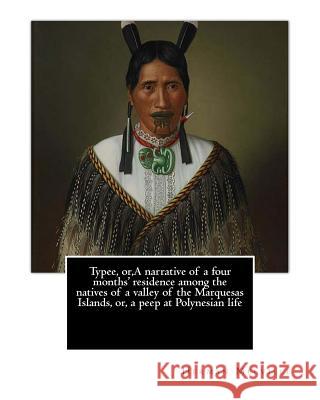Typee, or, A narrative of a four months' residence among the natives of a valley of the Marquesas Islands, or, a peep at Polynesian life. By: Herman M » książka
Typee, or, A narrative of a four months' residence among the natives of a valley of the Marquesas Islands, or, a peep at Polynesian life. By: Herman M
ISBN-13: 9781542687256 / Angielski / Miękka / 2017 / 176 str.
Typee, or, A narrative of a four months' residence among the natives of a valley of the Marquesas Islands, or, a peep at Polynesian life. By: Herman M
ISBN-13: 9781542687256 / Angielski / Miękka / 2017 / 176 str.
(netto: 45,94 VAT: 5%)
Najniższa cena z 30 dni: 48,51
ok. 16-18 dni roboczych
Bez gwarancji dostawy przed świętami
Darmowa dostawa!
Lemuel Shaw (January 9, 1781 - March 30, 1861) was an American jurist who served as Chief Justice of the Massachusetts Supreme Judicial Court (1830-1860). Prior to his appointment he also served for several years in the Massachusetts House of Representatives and as a state senator. In 1847 Shaw became the father-in-law of author Herman Melville.... Herman Melville (August 1, 1819 - September 28, 1891) was an American novelist, short story writer, and poet of the American Renaissance period. His best known works include Typee (1846), a romantic account of his experiences in Polynesian life, and his whaling novel Moby-Dick (1851). His work was almost forgotten during his last thirty years. His writing draws on his experience at sea as a common sailor, exploration of literature and philosophy, and engagement in the contradictions of American society in a period of rapid change. He developed a complex, baroque style: the vocabulary is rich and original, a strong sense of rhythm infuses the elaborate sentences, the imagery is often mystical or ironic, and the abundance of allusion extends to Scripture, myth, philosophy, literature, and the visual arts. Born in New York City as the third child of a merchant in French dry goods, Melville's formal education ended abruptly after his father died in 1832, leaving the family in financial straits. Melville briefly became a schoolteacher before he took to sea in 1839 as a common sailor on a merchant ship. In 1840 he signed aboard the whaler Acushnet for his first whaling voyage, but jumped ship in the Marquesas Islands. After further adventures, he returned to Boston in 1844. His first book, Typee (1845), a highly romanticized account of his life among Polynesians, became such a best-seller that he worked up a sequel, Omoo (1847). These successes encouraged him to marry Elizabeth Shaw, of a prominent Boston family, but were hard to sustain. His first novel not based on his own experiences, Mardi (1849), is a sea narrative that develops into a philosophical allegory, but was not well received. Redburn (1849), a story of life on a merchant ship, and his 1850 expose of harsh life aboard a Man-of-War, White-Jacket yielded warmer reviews but not financial security. In August 1850, Melville moved his growing family to Arrowhead, a farm near Pittsfield, Massachusetts, where he established a profound but short-lived friendship with Nathaniel Hawthorne, to whom he dedicated Moby-Dick. Moby-Dick was another commercial failure, published to mixed reviews. Melville's career as a popular author effectively ended with the cool reception of Pierre (1852), in part a satirical portrait of the literary scene. His Revolutionary War novel Israel Potter appeared in 1855. From 1853 to 1856, Melville published short fiction in magazines, most notably "Bartleby, the Scrivener" (1853), "The Encantadas" (1854), and "Benito Cereno" (1855). These and three other stories were collected in 1856 as The Piazza Tales. In 1857, he voyaged to England, where he reunited with Hawthorne for the first time since 1852, and then went on to tour the Near East. The Confidence-Man (1857), was the last prose work he published during his lifetime. He moved to New York to take a position as Customs Inspector and turned to poetry. Battle-Pieces and Aspects of the War (1866) was his poetic reflection on the moral questions of the Civil War. In 1867 his oldest child, Malcolm, died at home from a self-inflicted gunshot. Clarel: A Poem and Pilgrimage in the Holy Land, a metaphysical epic, appeared in 1876. In 1886, his second son, Stanwix, died and Melville retired. During his last years, he privately published two volumes of poetry, left one volume unpublished, and returned to prose of the sea: the novella Billy Budd, left unfinished at his death, was published in 1924.
Zawartość książki może nie spełniać oczekiwań – reklamacje nie obejmują treści, która mogła nie być redakcyjnie ani merytorycznie opracowana.











